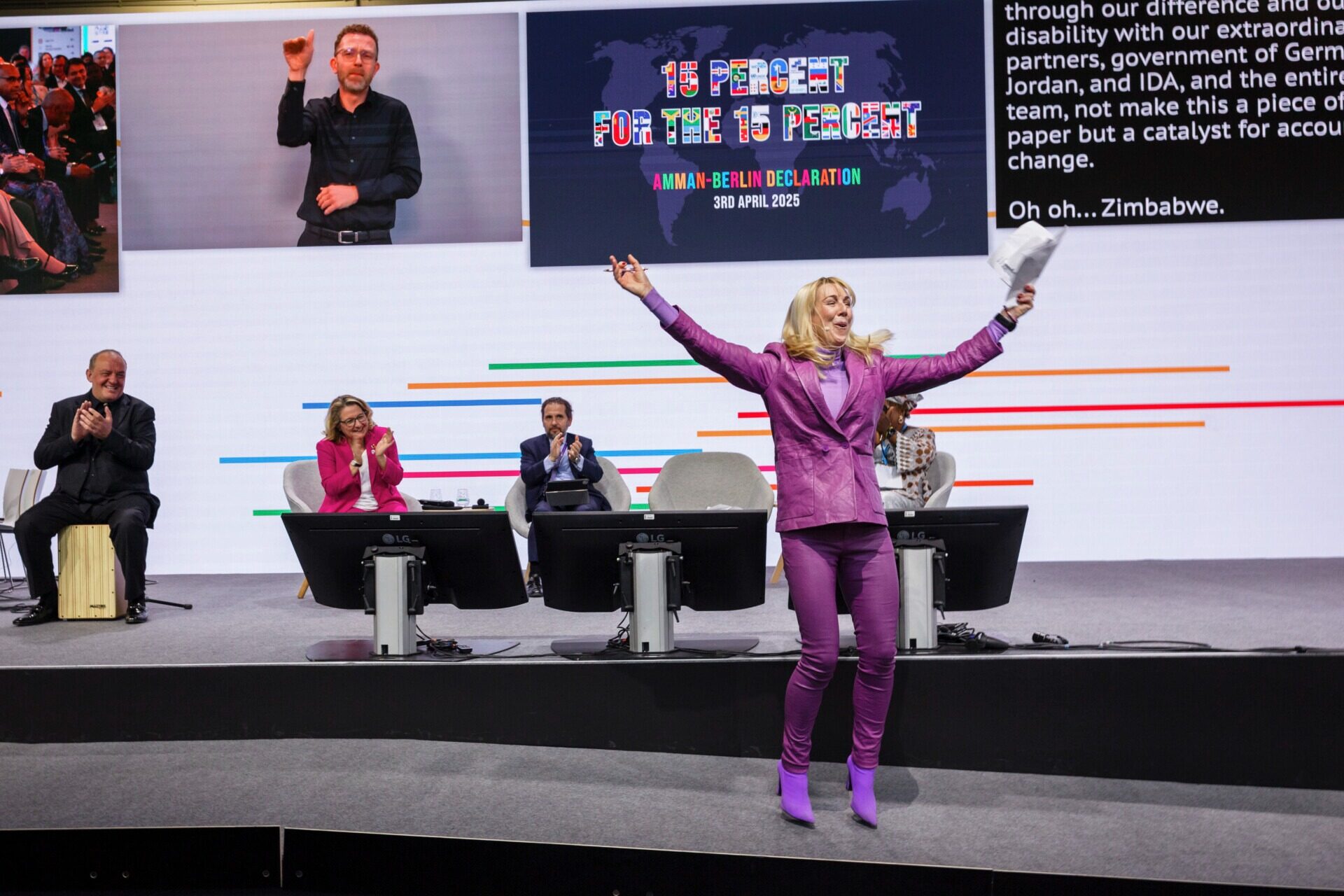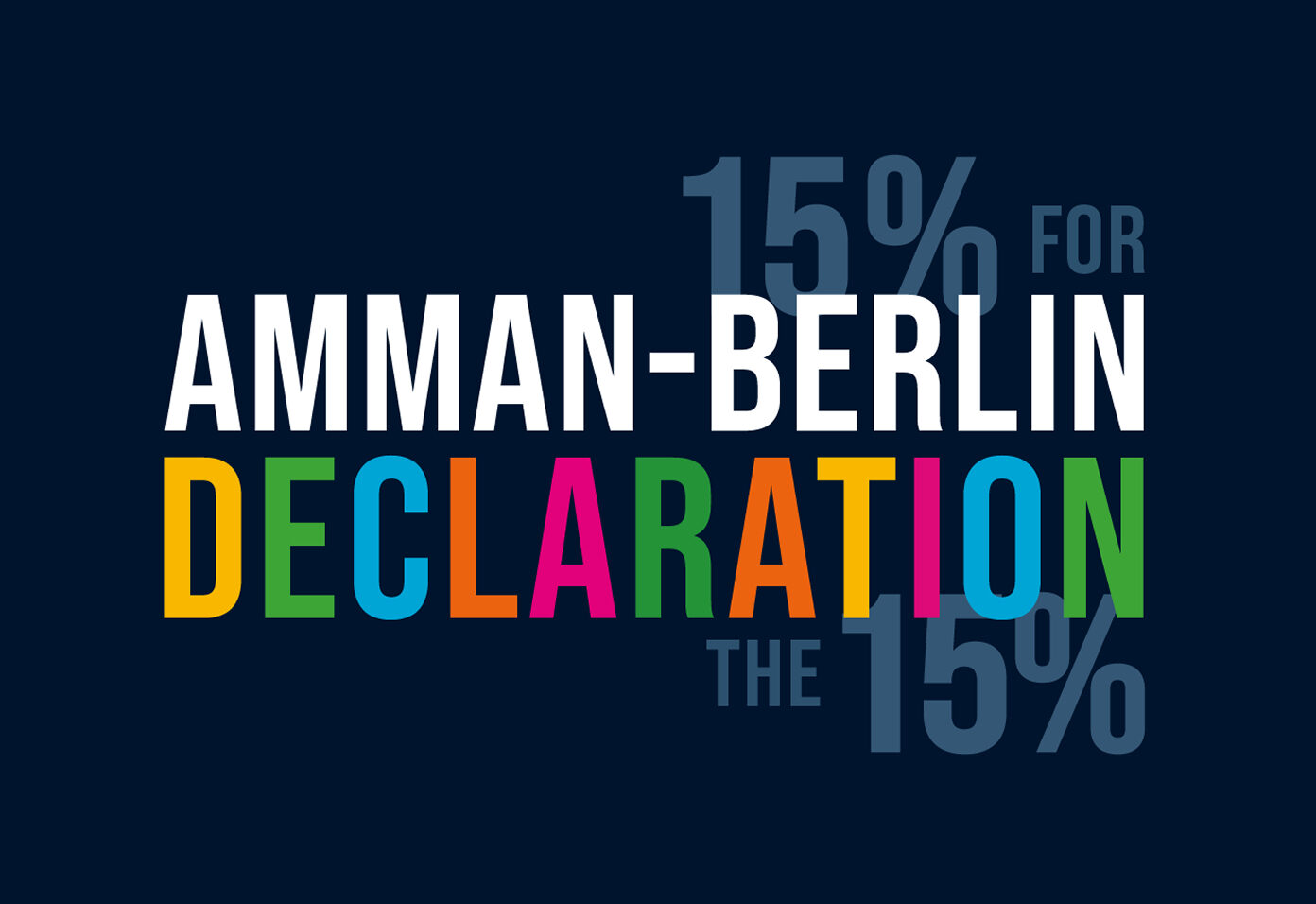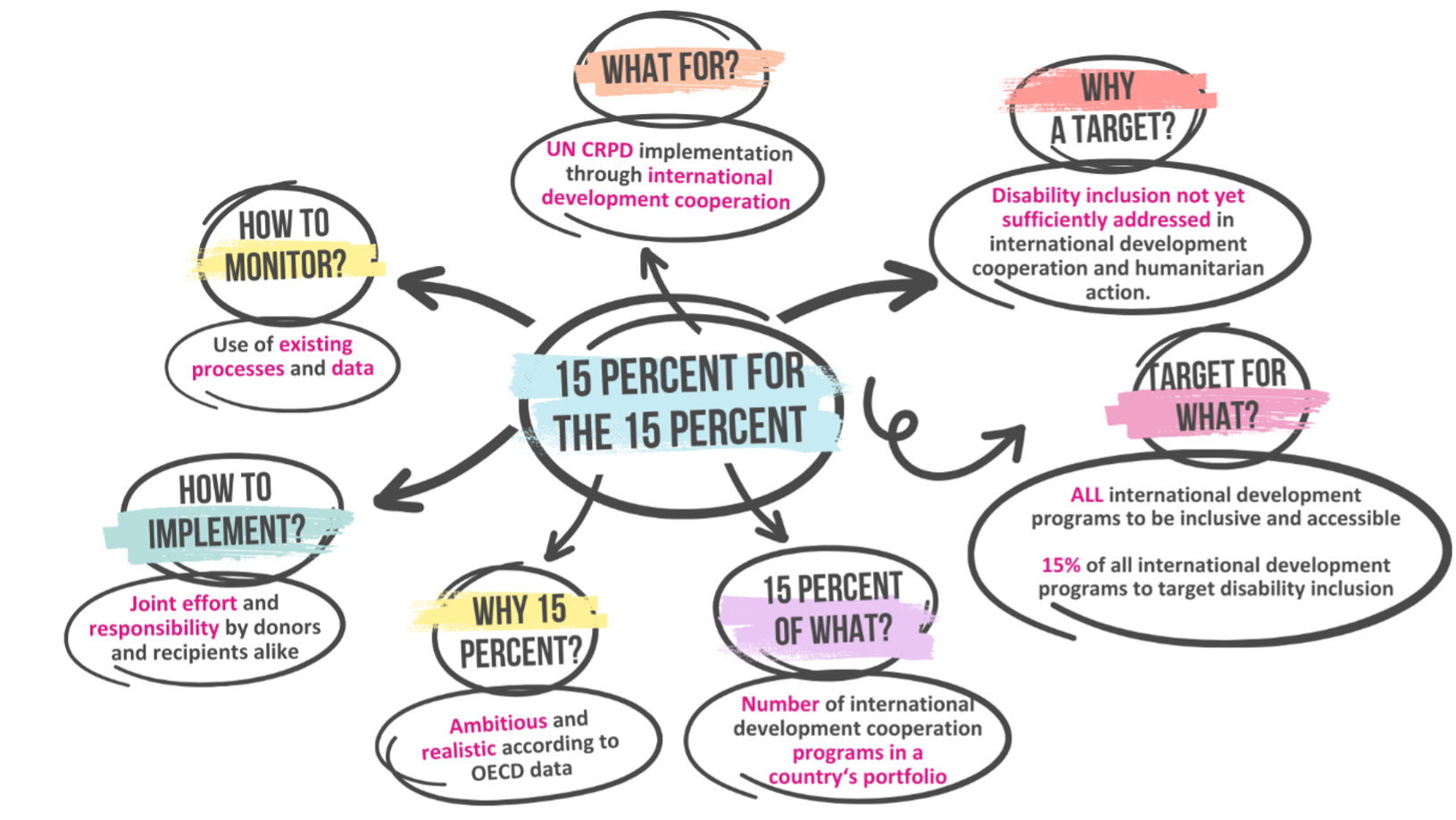A Milestone: The Amman-Berlin Declaration
The “Amman-Berlin Declaration on Global Disability Inclusion” marks an important milestone for advancing the rights of persons with disabilities worldwide.
While its nature is purely political, it has been hailed as “both inspirational and operational” and as an instrument that makes the move from “symbolic inclusion to practical, resource- and rights-based inclusion”. It is one of the most significant outcomes of the GDS 2025, as for the first time ever, it contains strong and concrete commitments to make international development cooperation more inclusive and accessible for persons with disabilities. The Declaration also emphasizes the importance of meaningful engagement of organizations of persons with disabilities (OPDs) and aims to foster impactful partnerships.

The actors endorsing the declaration agree to

With the “15 percent for the 15 percent” target, the Amman-Berlin Declaration seeks to establish, for the first time, a quantifiable target for disability inclusion at a global scale. The goal is to achieve this target until the 4th GDS in 2028.
Why Set Targets?
It is known that inclusion of persons with disabilities is still not in the focus of international development cooperation and humanitarian action. The biggest minority group (15 – 16 percent of the world’s population) is still being left behind. Quantifiable and concrete targets have proven to help set agendas and change mindsets and are therefore deemed the best way forward. This is why the Amman-Berlin Declaration is a unique opportunity to go beyond awareness-raising and individual commitments by bringing about measurable change through the “15 percent for the 15 percent” target in particular.
The idea of the “15 percent for the 15 percent” target is spelt out in the graphic below.

The Pathway to the Declaration
The Amman-Berlin Declaration was jointly drafted by the co-hosts of the GDS 2025, Jordan, Germany and the International Disability Alliance. Prior to the Summit, the Declaration was shared with a broad circle of countries and institutions to encourage their endorsements. This resulted in a significant number of governments and international organizations supporting the Declaration by the time of the Summit in early April 2025. By November 2025, 101 governments and international organizations had endorsed or submitted letters of support.
Endorsement is still possible and open to governments, regional organizations and UN entities as well as development banks and funds. Endorsements will be collected by the German Federal Ministry for Economic Cooperation and Development (BMZ) by email.
Please send respective emails to the following address: Amman-Berlin-Declaration@bmz.bund.de.
The Declaration is available in English (original) as well as in Spanish, French, Russian and Arabic (courtesy translations). Easy-to-read versions are available in English and Arabic.
An accompanying Technical Note provides essential details on the technical concept underpinning the 15 percent target. The Technical Note is available in English (original) as well as in Spanish, French, Russian and Arabic (courtesy translations).
Please refer to the Downloads page for the text of the Declaration and the Technical Note as well as a list of endorsements.